Susan Reynolds Whyte, Guest Editor, is a professor in the Department of Anthropology, University of Copenhagen. She has carried out fieldwork in Kenya, Tanzania, and mostly in Uganda, where she began working in 1969. Her interests are in the management of misfortune and uncertainty and the ways that families and societies try to secure well-being. Her research in Northern Uganda addresses changing relations of gender and generation, and attempts to find new social forms in the aftermath of war. Her most recent edited book is a collaborative effort: This Land is not for Sale: Trust and Transitions in Northern Uganda (Berghahn 2023).
Email: susan.reynolds.whyte[at]anthro.ku.dk
Agatha Alidri has a PhD in History from Makerere University and holds a Post-Doc under the Consolidating Early Career Academic Programme (Carnegie Fund). She is a lecturer in the History Department at Gulu University. Much of her research has concentrated on the West Nile Region of Northern Uganda, where she has studied indigenous ethnic minority communities such as the Ndrukpa (Lendu) and Kebu, and indigenous approaches in peacebuilding among the Lugbara. She is the principal investigator of a project on the effect of Covid-19 on youth reproductive health in Northern Uganda. She is currently researching inter-generation justice in Northern Uganda and its implications for children born in war.
Email: a.alidri[at]gu.ac.ug
Charles Nelson Okumu holds a PhD from Gulu University and MPhil from Sheffield University in the UK. He studied Literature at the undergraduate and Master levels at Makerere University. He has published widely on the poetry of Okot p’Bitek and the Acoli culture. He is the chair of the Acoli Language Board and an Associate Professor of Literary and Cultural Studies in the Department of Languages and Literature, Gulu University. He is involved in the administration of two key projects at the University: ‘Building Stronger Universities’ and ‘Upchain: Unlocking the Potential of Green Charcoal Innovations to Mitigate Climate Change in Northern Uganda’.
Email: c.n.okumu[at]gu.ac.ug
Sulayman Babiiha Mpisi holds a PhD in Development Studies from Gulu University, a Master in Development Studies from Uganda Martyrs University, and a BA from Makerere University. He is a lecturer in the Department of Development Studies, Gulu University. His research interests have seen him participate in projects about Corporate Social Responsibility, community participation in development of secondary education, food security, sustainable livelihoods, reparations for war victims, and human-wildlife conflict in post-war Northern Uganda. He has published several journal articles and book chapters. He pioneers qualitative research methodology for PhDs in the Faculty of Business and Development Studies, Gulu University.
Email: s.m.babiiha[at]gu.ac.ug
Enos Kitambo studied International Peace Studies and Public Administration at United Nations University for Peace in Costa Rica and at Gulu University. He holds a PhD in Social Work from Makerere University. He is employed as a lecturer and head of department at Gulu University’s Department of Public Administration and Management. Much of his work rotates around youth livelihood challenges, youth entrepreneurship, social policy, agri-entrepreneurship, post-conflict and refugee studies, and social entrepreneurship. His recent project focuses on entrepreneurial intentions of social science graduates in Uganda.
Email: enoskitambo[at]gu.ac.ug
Doreen Chemutai is a lecturer in the Department of Public Administration and Management at Gulu University. In addition to her teaching role, she coordinates gender mainstreaming initiatives within the university. Doreen holds a PhD in Gender Studies and has a keen interest in areas such as intersectionality, gender-based violence, policy analysis, gender in the workplace, and women’s representation and participation in leadership. Her career aspiration is to become a leading researcher who actively engages in discourse on gender issues, policies and initiatives that advance gender equality, both within academic circles and beyond.
Email: d.chemutai[at]gu.ac.ug
